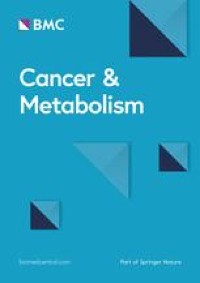Abstract
Background
Hepatocellular carcinoma (HCC) is the most prevalent form of liver malignancy and carries poor prognoses due to late presentation of symptoms. Treatment of late-stage HCC relies heavily on chemotherapeutics, many of which target cellular energy metabolism. A key platform for testing candidate chemotherapeutic compounds is the intrahepatic orthotopic xenograft (IOX) model in rodents. Translational efficacy from the IOX model to clinical use is limited (in part) by variation in the metabolic phenotypes of the tumor-derived cells that can be induced by selective adaptation to subculture conditions.
Methods
In this study, a detailed multilevel systems approach combining microscopy, respirometry, potentiometry, and extracellular flux analysis (EFA) was utilized to examine metabolic adaptations that occur under aglycemic growth media conditions in HCC-derived (HEPG2) cells. We hypothesized that aglycemic growth would result in adaptive "aerobic poise" characterized by enhanced capacity for oxidative phosphorylation over a range of physiological energetic demand states.
Results
Aglycemic growth did not invoke adaptive changes in mitochondrial content, network complexity, or intrinsic functional capacity/efficiency. In intact cells, aglycemic growth markedly enhanced fermentative glycolytic substrate-level phosphorylation during glucose refeeding and enhanced responsiveness of both fermentation and oxidative phosphorylation to stimulated energy demand. Additionally, aglycemic growth induced sensitivity of HEPG2 cells to the provitamin menadione at a 25-fold lower dose compared to control cells.
Conclusions
These findings indicate that growth media conditions have substantial effects on the energy metabolism of subcultured tumor-derived cells, which may have significant implications for chemotherapeutic sensitivity during incorporation in IOX testing panels. Additionally, the metabolic phenotyping approach used in this study provides a practical workflow that can be incorporated with IOX screening practices to aid in deciphering the metabolic underpinnings of chemotherapeutic drug sensitivity.



Δεν υπάρχουν σχόλια:
Δημοσίευση σχολίου